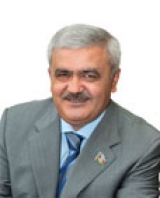An Iranian twist to Socar’s Gas Import Story
The tortuous tale of Azerbaijan’s efforts to restructure its gas balance has suddenly taken a most unexpected twist: the state oil company has broken off negotiations to purchase gas from Russia and instead is now looking to import gas from Iran.
The volumes are not that great, and primarily concern gas required to replenish the country’s underground storage facilities. But the issue highlights the paradox whereby a country moving to become a key gas exporter is also dependent on importing gas to satisfy domestic demand.
And for the State Oil Company of Azerbaijan (Socar), which handles the country’s gas affairs, the problem is compounded by the need to focus on two other gas-related issues: its move to become the largest shareholder in the Greek gas system operator, Desfa, and to ensure the smooth financing of its 58% commitment to construction of the $9.3bn pipeline across Turkey – the TransAnatolian Pipeline, or Tanap.
All these issues were addressed by Socar president Rovnag Abdullaev in a series of wide-ranging comments September 5.
The most surprising issue concerns gas imports. Azerbaijan is expanding its underground gas storage facilities (UGSF) at Galmaz and and Garadagh to hold 3.5bn m³, with plans to take that figure up to 5bn m³ eventually. However, it needs what is termed cushion gas to provide pressure and had been looking to import as much as 3bn m³ from Gazprom, primarily for this purpose.
“Currently we need several billion cubic meters of cushion gas for injecting into UGSF and testing its real capacity,” Abdullaev said. With regard to Gazprom, he added: “We planned to buy cushion gas, but proposed supply conditions did not satisfy us. In this regard, the negotiations were redirected to Iran.”

Socar CEO Rovnag Abdullaev
Abdullaev said that when the Iranian president Hassan Rouhani visited Baku August 8, energy discussions focussed on the import of 1-2bn m³ of Iranian gas. “The proposal deals with the fact that Iran experiences greater difficulties with the gas supply to the northern regions in winter, while in summer Iran has no opportunities to store gas due to the practice of conservation of the wells,” Abdullaev said.
Azerbaijan’s most recent statistical report for energy shows that volumes of gas in storage have fallen in recent years. Whereas in 2013 Azerbaijan transferred some 198.3mn m³ into storage, in 2014 it took out 280.2mn m³ and in 2015 a further 302.2mn m³. Azerbaijan remains pinched for gas domestically, because almost all the gas from fields that are actually increasing their output, which in effect amounts to output from the first and second phases of the giant Shah Deniz field, is already contracted for delivery overseas while gas available for the domestic market is falling. In order to reduce demand for gas, power stations are consuming more fuel oil, promoting an increase in fuel oil imports from just 21.2mn metric tonnes in 2014 to 137mn mt in 2015.
In further comments Abdullaev said that the price Socar should pay to acquire Desfa should be halved because of violations to the originally agreed rules and bidding procedures. This primarily concerned Greek moves to reduce Desfa's regulatory asset base, apparently from around the €1bn figure assumed by Socar to around €800mn, a move which would radically change the basis on which Socar would be able to secure a return on its initial investment.
“Our company and our partner Snam are negotiating with the government of Greece, we are waiting for explanations from them and we are not going to refuse to buy stake in Greek gas operator,” he said.
When Abdullaev said he wanted to halve the price Socar would have to pay, it was not clear whether this also reflected the fact that, in order to avoid running foul of EU regulations, Socar is now proposing to take a 49% stake in Desfa, rather than the originally mooted 66% stake. Italy’s Snam, and possibly some other companies, would purchase the 17% stake that Socar is no longer seeking to secure.
On Tanap Abdullaev stressed that “the financing of project is not a problem." Azerbaijan was seeking to external support for the $9.3 bn project in which Socar holds a 58% stake. Financing discussions have already taken place and further discussions will be held next year, Abdullayev said. Socar, he added, has “as much time as we need” to finance its share of the 1,850-km pipeline, which constitutes the key central infrastructure section of the $39bn set of projects known as the Southern Gas Corridor (SGC). Tanap, the Socar chief added, was ahead of schedule with 850 km of pipe already welded. The line is due to open in the second half of 2018. Initial deliveries will comprise 6bn m³/y of gas to Turkey and 10bn m³/y to countries beyond Turkey, notably Italy. These deliveries are scheduled to start in 2020.
There are some other straws in the wind. Baku and Ashgabat are still talking about connecting Turkmenistan’s offshore Turkmen Caspian gasfields to Azerbaijan’s offshore gas collecting system, so that Turkmen gas could be imported into Azerbaijan, or transited to Turkey and Europe via the SGC, or a combination of the two.
It was, perhaps, a happy coincidence that on the same day as Abdullaev discussed switching the import search from Russia to Iran, halving the cost of Desfa and ensuring Tanap finance that the transport ministers of Azerbaijan, Turkey and Turkmenistan signed a declaration in Ashgabat committing themselves to creating a Trans-Caspian transport corridor designed to serve as a crucial section in new rail and road links extending from Beijing to London.
John Roberts, Chief Analyst


